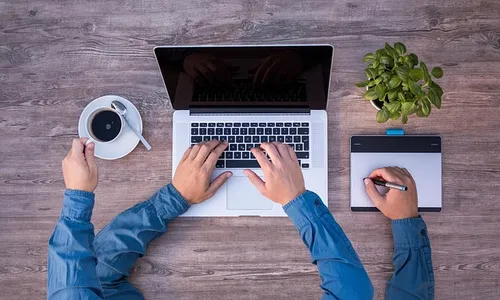Social Self-Care: How Introverts Recharge Without Guilt

It’s Friday night. Your group chat is buzzing. Someone’s throwing a themed party (again), your coworker invited you to a game night (again), and your neighbor wants to “pop over for just a quick drink” (spoiler: it’s never quick). Meanwhile, you’re on the couch, in your comfiest socks, debating if eating cereal in the dark while watching cat videos counts as self-care. Spoiler alert: it absolutely does.
If you’re an introvert, you’ve probably mastered the art of dodging social commitments with the grace of a ninja. But here’s the plot twist—social self-care isn’t about avoiding people entirely. It’s about knowing your limits, protecting your energy, and finding joy in connection without the emotional hangover.
Let’s talk about how introverts can show up, log off, and recharge with zero guilt. Yes, it’s possible. And no, you don’t need to explain your quiet time to anyone.
What Is Social Self-Care, Anyway?
Social self-care is all about nourishing your relationships while preserving your sanity. It means checking in with people you love, setting boundaries with people you tolerate, and knowing when to say “nope” without spiraling into guilt.
For introverts, this takes finesse. You’re not antisocial—you’re selectively social. Your battery drains fast in group settings, but a cozy one-on-one over tea? That’s your jam. Social self-care is how you stay connected on your terms.
Why Introverts Need a Different Self-Care Strategy
Most mainstream self-care advice screams “go out more!” or “host a wine night!” But introverts thrive in solitude, and our social tank doesn’t come with a Tesla-grade battery.
Here’s what makes introverted self-care different:
- Small talk is exhausting. You’d rather discuss the philosophical meaning of banana bread than talk about the weather for the fifth time today.
- You need downtime to think. You recharge by processing, reflecting, and (let’s be real) daydreaming about being alone in a cabin in the woods.
- People-pleasing leads to burnout. Saying yes when you mean no? Fast track to existential dread and three days in a blanket burrito.
Signs Your Social Battery Is on Empty
Let’s play a fun game called “Am I socially fried or just moody?” If you relate to any of these, your social battery might be begging for a recharge:
- You get irrationally annoyed when someone texts “Hey!”
- You fantasize about canceling plans more than going on vacation.
- Your go-to reply is “Ugh, do I have to?” even for birthday parties.
- You’ve suddenly developed an allergy to group chats.
- You need a nap after a 20-minute phone call.
Sound familiar? Then it’s time to prioritize self-care—your version of it.
10 Guilt-Free Ways Introverts Can Practice Social Self-Care
1. Schedule Your Solitude Like an Appointment
Protect your alone time like it’s a meeting with Beyoncé. Block it on your calendar. Say it’s “non-negotiable” (because it is). The world won’t implode if you miss one happy hour.
2. Set Boundaries Without Apologizing
You don’t owe anyone a long-winded explanation. A simple “I can’t make it, but thank you” is enough. Boundaries aren’t rude—they’re responsible. Respecting your needs teaches others to do the same.
3. Redefine What “Social” Looks Like
Who said socializing means noise and crowds? Introverts thrive in quiet connections. Think:
- Walks with a close friend
- Sharing memes with your sibling
- Sending voice notes instead of texting
- Playing co-op games from separate rooms
If it brings you joy, it counts.
4. Embrace the Irish Exit (Gracefully)
Leaving early isn’t rude—it’s strategic. Have a script ready: “I’m so glad I came, I need to head out but let’s catch up soon.” Then disappear like Batman. Bonus: you get home in time for your Netflix ritual.
5. Use Tech as a Buffer
Texting. Emojis. GIFs. These are introvert power tools. They help you stay connected without the draining face-to-face factor. Voice messages are perfect if you want to “talk” but also want to stay in bed, horizontal.
6. Create a Post-Social Recharge Ritual
After any social event, give yourself time to decompress. Whether it’s journaling, watching a comfort show, or sitting in the dark staring at a wall (no judgment), your brain needs quiet time to recover.
7. Say Yes Selectively
You don’t need to be everywhere, doing everything. Choose events and people that truly light you up. If it’s not a “heck yes,” it’s probably a polite pass.
8. Practice Micro-Connections
Introverts often think socializing has to be all-or-nothing. But small gestures—commenting on a friend’s story, replying to a group message with an emoji, checking in via text—keep relationships strong without overwhelming you.
9. Learn to Love “Quiet Companionship”
There’s magic in simply existing next to someone without constant chatter. Reading in the same room, working silently together, or watching a movie side-by-side? Peak introvert bonding.
10. Drop the Guilt Like It’s Hot
Feeling guilty for needing space is like apologizing for breathing. You are allowed to recharge. You are allowed to unplug. And you’re not a bad friend, partner, or family member for needing silence. You’re human—and introverted. That’s it.
When Social Self-Care Becomes a Superpower
Here’s the secret sauce: when you prioritize social self-care, you show up better. You’re more present, more engaged, and less likely to mentally flee halfway through dinner. You become the kind of friend who listens deeply, makes others feel safe, and radiates calm instead of chaos.
Introversion isn’t a weakness. It’s a strength—especially in a world addicted to constant noise. Your ability to choose quality over quantity, depth over chatter, and stillness over hustle is a gift. So protect it, nurture it, and take pride in the way you move through the world—with intention, grace, and a quiet confidence that speaks volumes.
FAQ
What is social self-care for introverts?
Social self-care for introverts means maintaining meaningful connections while preserving personal energy. It involves setting boundaries, choosing intentional interactions, and allowing space for solitude without guilt.
Is it okay to say no to social events?
Yes! Saying no is a healthy way to protect your energy. You don’t have to attend every gathering. Choosing rest over social obligations is a valid and necessary form of self-care.
How can introverts stay connected without getting overwhelmed?
Try micro-connections like texting, sharing memes, or voice notes. Prioritize one-on-one time and small gatherings over large, loud events. Quiet companionship and asynchronous communication work wonders too.
Why do introverts feel guilty about needing space?
Social norms often glorify extroversion, making introverts feel “weird” for craving solitude. But needing space isn’t selfish—it’s a natural part of your personality and critical for your well-being.
What’s the best way to recharge after social interaction?
Develop a post-social ritual like journaling, meditating, watching a comfort show, or just being alone in silence. Doing something calming helps reset your nervous system and refuels your energy.
Explore more blogs on lifestyle:




